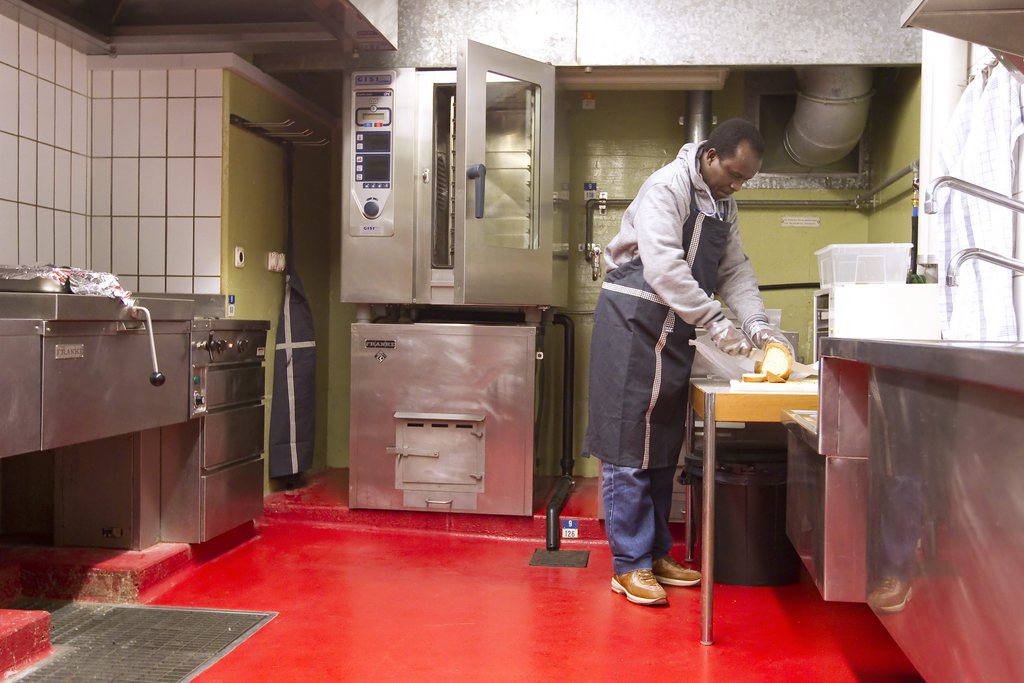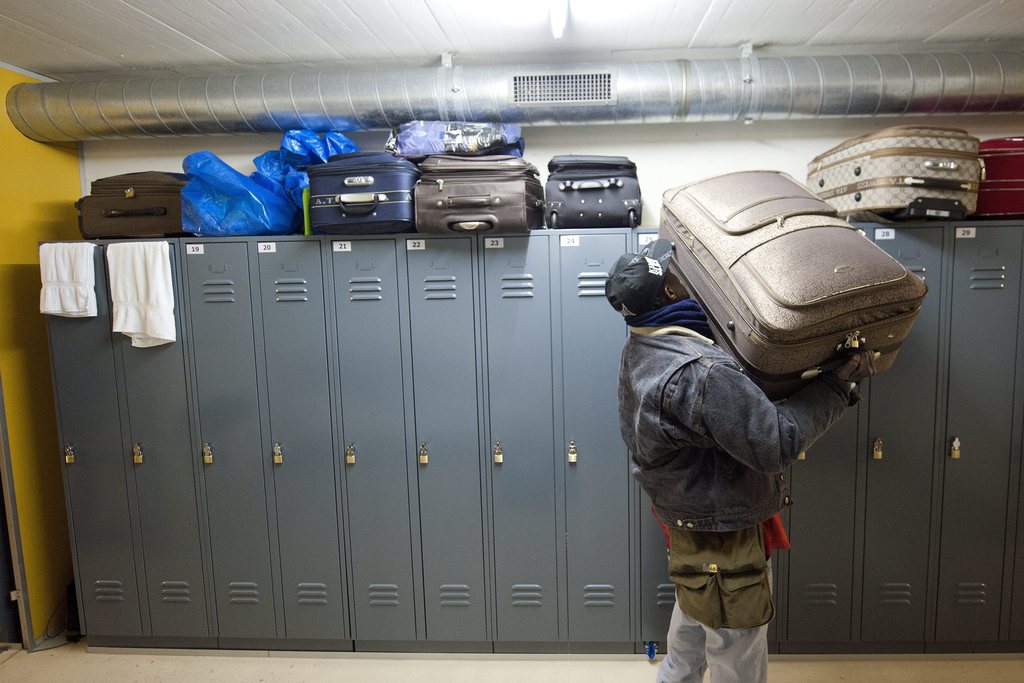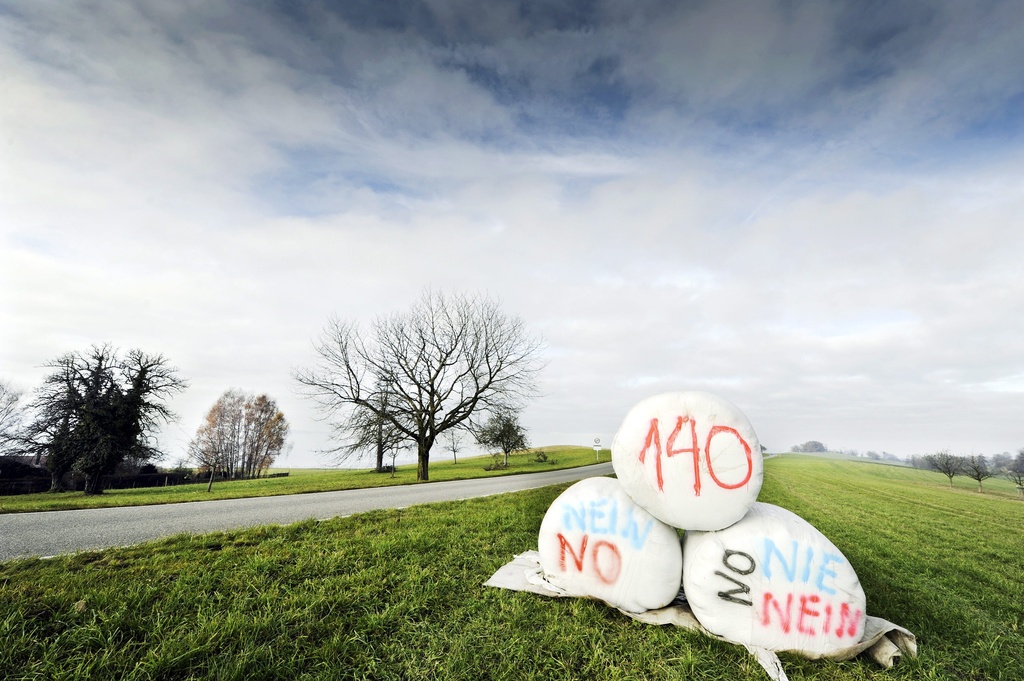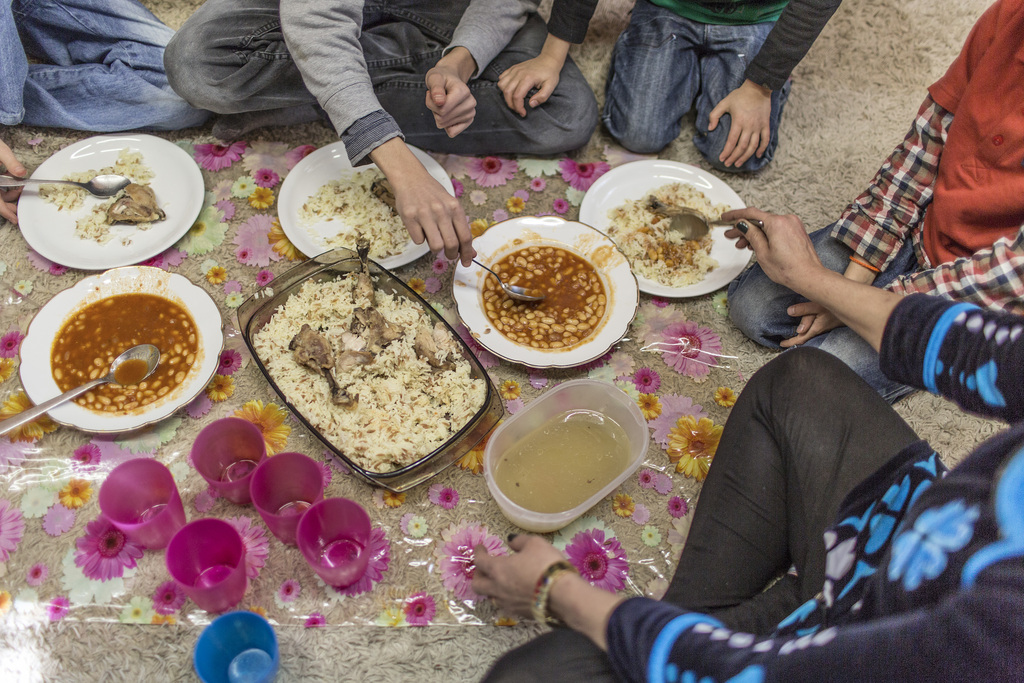Local rules for asylum seekers stir up emotions

Restrictions at a new national centre for asylum seekers have prompted a controversy. The authorities say the measures are necessary to prevent tension with residents in the town of Bremgarten.
The restrictions include a ban for asylum seekers to be in schoolyards during the day and to visit the outdoor swimming pool without explicit permission by the authorities.
“We need rules to ensure a peaceful and orderly coexistence of residents and asylum seekers,” Mario Gattiker, head of the Federal Migration Office, told journalists.
Sanctions are only imposed if perpetrators violate the public order, he added.
However, the non-governmental Refugee Council says it is dismayed by the restrictions and calls on the authorities to suspend what it considers intolerable and inhuman restraining orders.
It said it is up to the Federal Refugees Office and the local authorities to “create an atmosphere of openness” among the 6,500 residents of Bremgarten, a town 20km west of Zurich.
In an open letter, the rights group Solidarité Sans Frontières described the measures as “blatantly discriminatory”.
The Swiss liaison office of the United Nations High Commissioner for Refugees said any restrictions should be kept to a minimum, according to the Swiss News Agency.

More
Taking a turn at hosting asylum seekers
National centre
The centre for up to 150 asylum seekers is the first of its kind and opened at the beginning of this week. Parliament last year approved the creation of national sites for a period of three years, giving the government a greater say over the cantons and local authorities.
A similar centre is to open in the city of Zurich next year.
Asylum centres regularly face opposition by the local population (see previous stories below), amid security concerns and political pressure.
The government aims to speed up asylum procedures in Switzerland. In June, Justice Minister Simonetta Sommaruga announced plans aimed at cutting the time needed to process requests from 1,400 days today to just 140 in most cases.
The number of asylum requests dropped to just over 11,000 – a decrease of about a third – in the first half of this year. However, experts say the figures will increase again in the second half.

In compliance with the JTI standards
More: SWI swissinfo.ch certified by the Journalism Trust Initiative













You can find an overview of ongoing debates with our journalists here . Please join us!
If you want to start a conversation about a topic raised in this article or want to report factual errors, email us at english@swissinfo.ch.